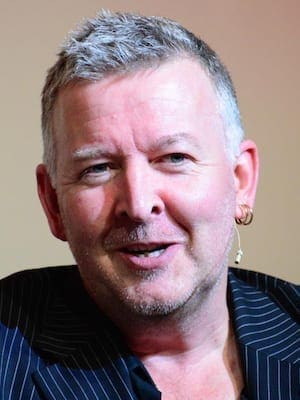A colleague noted on his Facebook page that he had seen little reference to World Earth Day (April 22).
There could be numerous reasons for this. One of them is what ethicist Willis Jenkins calls “moral incompetence.”
This is no insult, but the recognition that some issues appear so great that they leave people so “ethically overwhelmed” that it undermines our ability to respond in any meaningful way at all.
It is Ray Andrew Newson who picks up on these languages and ideas and writes on this in his recent work, “Radical Friendship: The Politics of Communal Discernment.”
Speaking explicitly about Christians he writes, “To be sure, Christians have severely misdiagnosed threats throughout history – that is nothing new. But in such moments as well as today, what this represents even if only in retrospect is a failure of discernment – failure of the capacities of individual Christians and individual Christian communities to hear and articulate, what to do, or who to be in the face of moral threat.”
In this way, Christians participate in the “moral incompetence” of wider society in the face of moral issues, questions and threats.
In response, Newson argues for the significant role that local Christian “communal discernment” can make to such situations.
I agree with the significant place that Newson would give to “communal discernment” not least in relation to a “Baptist” congregational ecclesiology.
I also resonate with his wider argument that this ecclesiological polity has trajectories toward a “radical democratic” emphasis on local participative politics as a solution to the reduction of “citizens to consumers” and participants to voters.
While not really one of his themes, I also am supportive of integrating a variety of ideas that can foster and create a more active participation of all voices in discussions and discernment.
The above notwithstanding, I would want to highlight the “theological” perspective of specifically Christian communal discernment. For this is not only discussion and decision but “discernment.”
This is discernment not simply of the “mind of the group,” but indeed of the “mind” of Jesus Christ himself.
To be sure, this requires that which may well be spiritual disciples as well as practical approaches, such as actively listening and taking the time to hold together in a greater common purpose even as we disagree.
But there is more. There is the expectation and faith that Jesus Christ through the Holy Spirit is present, and accordingly will be creative and disruptive and not least active in what is going on.
Christian congregational discernment is not less but is certainly something theologically more than participatory local governance (even that in which we may see God at work).
It is the context in which we want to be able to say that not only does it seem good to “us” but indeed to the “Holy Spirit and us.”
Without that claim – rather, without that living Spirit reality – we reduce such gatherings to something less than they can be and ought to be, and need to be if we are to overcome both our “incompetence” or at times “overconfidence” in correct responses to complex issues.
In saying this, I agree with Newson that such discernment can be provisional as it is always forward moving and open to further development and correction from God and from others who are also seeking to live this way.
Leading and participating in such discernment takes time and energy, and a commitment to such a process of formation and transformation.
Perhaps, as I have argued elsewhere, this is why it is something that people are not willing to give time and attention to.
I think, though, I am with Newson; this is a “moral” issue of how to do ethics in a context of threatening paralysis or over certain platitudes.
So back to where I began: “World Earth Day” – one of many annual observances calling attention to ongoing global challenges that should garner greater engagement – is sadly another issue that remains discerningly unexplored in relation to the rich resources available to us in meeting together to ask what the living Jesus Christ may be saying to his Church here and now.
Stuart Blythe is associate professor of the John Gladstone Chair in Preaching and Worship at Acadia Divinity College, Nova Scotia. A version of this article first appeared on his blog, Politurgy, and is used with permission. You can follow him on Twitter @StuartMBlythe.
Stuart Blythe is associate professor of the John Gladstone Chair in Preaching and Worship at Acadia Divinity College, Nova Scotia.

